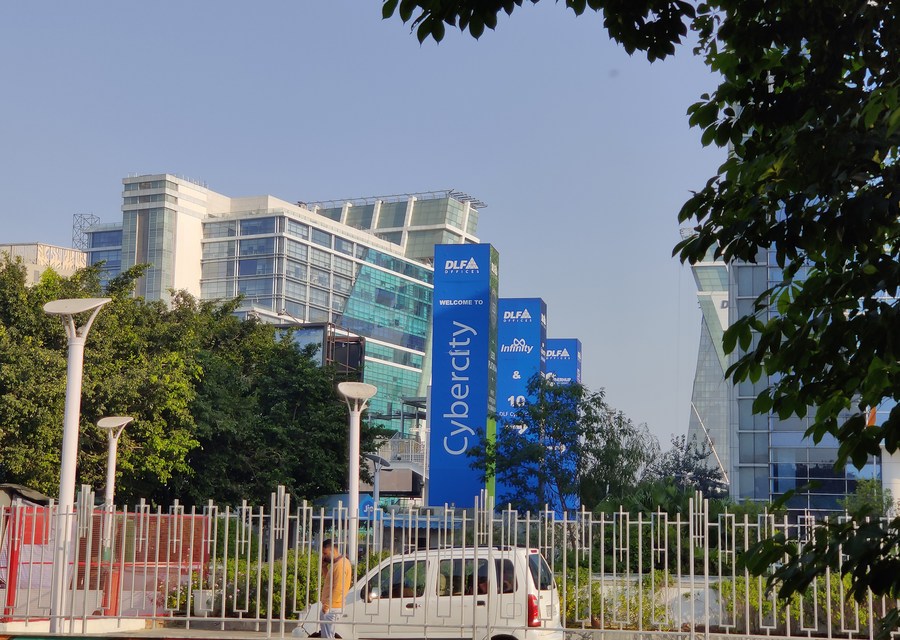In addition to the lack of transparency in market regulations, lower-than-expected market demand, inadequate infrastructure development, low labor skills, and poor business environment have all contributed to the exodus of foreign companies from India.
BEIJING, July 23 (Xinhua) — Recently, a string of prominent multinational corporations including electronics maker Foxconn Group and communications products supplier Wistron group, are withdrawing from the Indian market.
These companies are on a long list of multinational enterprises that were forced to exit, scale down, or consider pulling out of the Indian market over the years.
This trend brings sharp focus on the challenges foreign firms are facing in India, despite the country’s seemingly vast and promising consumer market. The perception of India as a potentially lucrative destination appears to conceal significant risks for foreign investors.
GRAVEYARD FOR FOREIGN COMPANIES
Despite having a large consumer population and a fast-growing economy, India is increasingly known as a hazardous “graveyard for foreign companies.” In the World Bank’s Global Doing Business report, India, which is expected by some to become the “new factory of the world,” was ranked as one of the worst countries in the world to start a business.
“Ease of doing business … there are very few countries we can compete with, obviously from the bottom. Probably, this is the worst country to do business in. That is a very frank statement I want to make,” Pankaj Mohindroo, chairman of the mobile industry body Indian Cellular & Electronics Association, once criticized the business climate in India.
Over the decades, wooed by the seemingly booming market, plenty of multinational companies have tried to jump on the bandwagon of exploring investment options in India, but few have proceeded any further.
In recent years, the Indian government has doubled down on blackmailing foreign companies with trumped-up charges. Google, Amazon, Nokia, and Samsung have all suffered billions of outrageous fines, while others including Xiaomi, OPPO, Vivo, Intel, and Wistron have also hit snags in the Indian market.
According to data from the Indian government, from 2014 to 2021, nearly 2,800 foreign companies registered in India closed their operations, accounting for about one-sixth of the total number of multinational companies in the country.
Through means like imposing huge fines, freezing deposits, and confiscating assets, the Indian government has habitually snatched the business gains of foreign enterprises. “You can earn money here; you can spend money here, but you can never take what you have earned here back home,” some investors in the country have lamented.
HARSH BUSINESS ENVIRONMENT
While some of the outgoing companies have either cited poor competitive positions against domestic companies or their global business strategies beyond India as reasons to quit the Indian market, many foreign investors have had long-running conflicts with the Indian law enforcement and tax authorities.
It has become commonplace for foreign companies in India to face hefty fines for an already long and still growing list of violations that often ignite controversy in the business community.
According to PwC India’s former leader on infrastructure Manish Agarwal, although foreign direct investment is still coming to India, strategic investors have stayed away.
“India needs to ensure proper project preparation timelines for public-private projects, provide balanced risk-sharing guidelines, and contracts should be enforced properly,” Agarwal told the Financial Express.
In addition to the lack of transparency in market regulations, lower-than-expected market demand, inadequate infrastructure development, low labor skills, and poor business environment have all contributed to the exodus of foreign companies from India.
Frequent electricity outages and water supply disruptions have made operations in India extra costly.
Even worse, half of the South Asian nation’s youth are leaving school without the necessary skills to find decent jobs in the coming decades, the United Nations International Children’s Emergency Fund has warned.
“This scenario must change if India wishes to make the most out of the changed world economic model and offers companies a diversified supply chain for raw materials, a market that they can rely on, and also certain tax benefits that will encourage their commercial interests to reap long term benefits from trading within the boundaries of India,” India’s leading online legal services provider Vakilsearch said in a recent report
Source(s): Xinhua

 News7 days ago
News7 days ago
 News6 days ago
News6 days ago
 News7 days ago
News7 days ago
 News7 days ago
News7 days ago
 News6 days ago
News6 days ago
 News1 day ago
News1 day ago
 World2 days ago
World2 days ago
 Business6 days ago
Business6 days ago

















